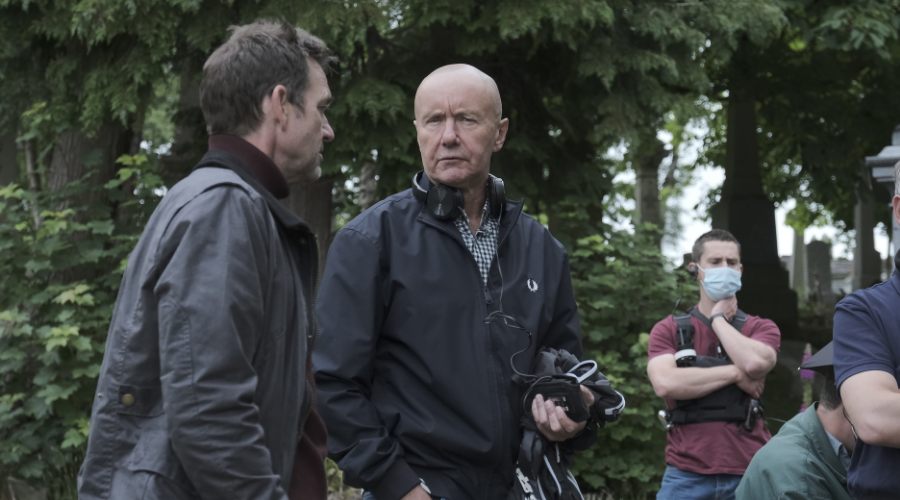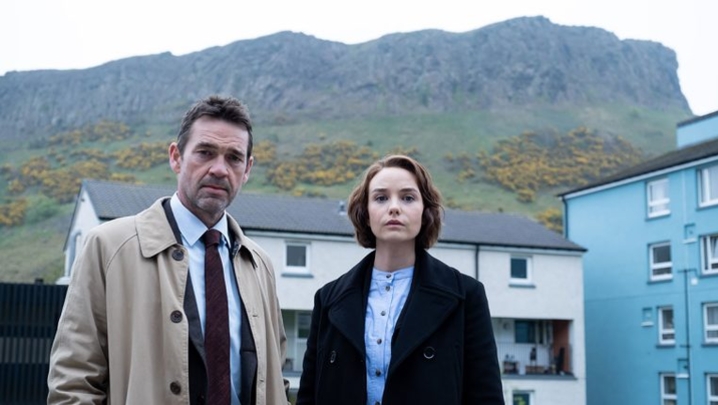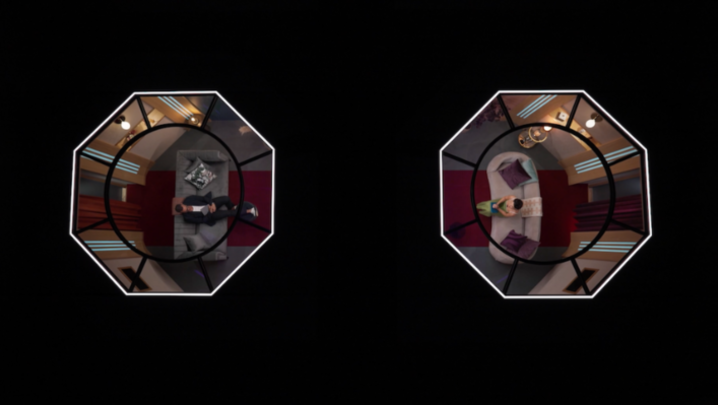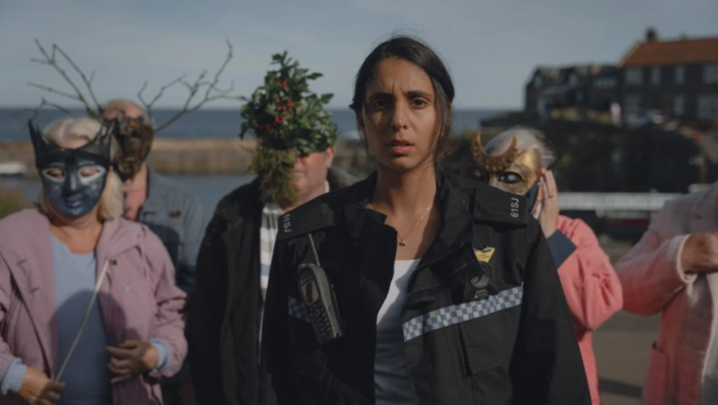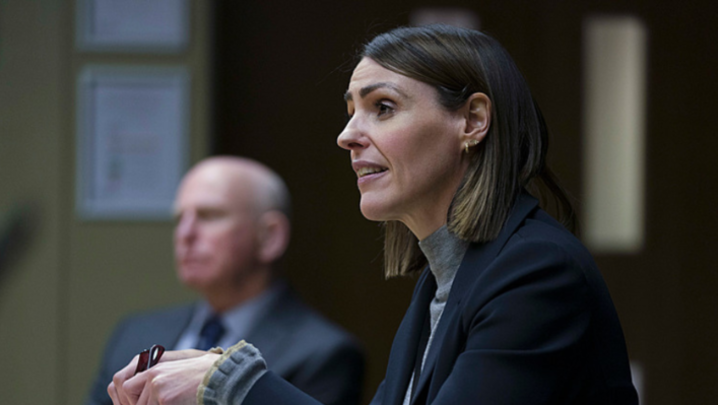Irvine Welsh says that he was “banging on doors for years” to bring his detective novel, Crime, to the small screen.
Set in Miami, the novel follows the hardened but fragile Detective Ray Lennox as he flees to the city to take his mind off a harrowing child rape-murder case back in Edinburgh. It was proving too costly a prospect for producers, says Welsh, until he took the case itself and drew out the six-part series from there.
The author is no stranger to screens having had success in cinema with four adaptations of his novels, including the box office smash and decade-defining Trainspotting (1996). Although, he admits, “you can get a bit comfortable and keep trying to replicate it.”
Now with higher production values attracting better talent and more hours to play with, Welsh believes “TV is definitely the way to go,” because “all that becomes a way to work novelistically.”
Crime drama is a well-trodden genre, so Welsh set out to subvert. He sees most British entries as being more procedural than psychological: “somebody’s done something bad, the cops try and catch them and this is the way they do it, so then the suburbanites can sleep easy in their beds at night.”
But Welsh says he is just not that interested in the procedures – those “bureaucratic devices” the police has fashioned over the years to do its job. When adapting Crime, he was willing to tear up that red tape to instead explore the psychology of the characters involved.
Specifically those like Lennox involved in ‘serious crimes’. Often investigating unspeakable acts, it is a department of positions entailing severe and prolonged stress, which means that “even if it attracts somebody who’s strong-willed, has a good moral compass and has no demons of their own, doing that job you soon have enough demons to be getting on with,” says Welsh.
Unlike the black and white morality that predicates most police dramas, in reality “it's about fucked up people trying to catch even more fucked up people so that everybody else can breathe easy,” he says.
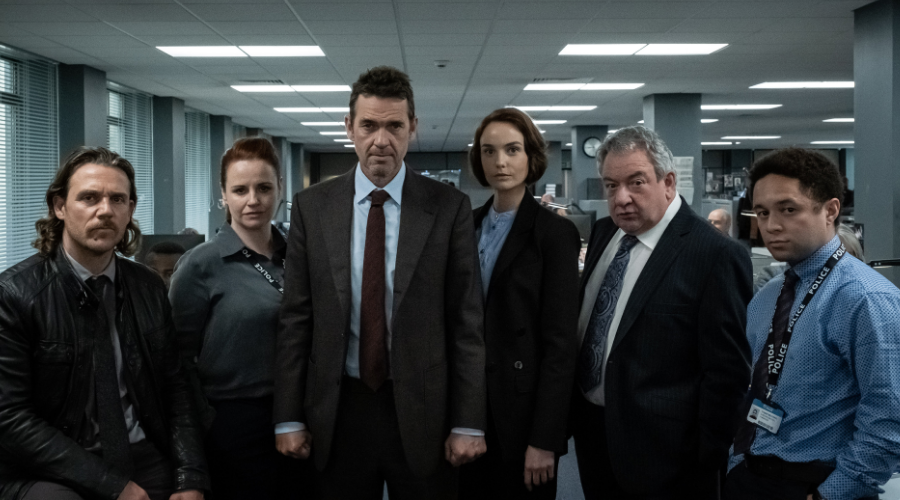
Lennox is one of them - the type of detective whose demons predate the position and continually resurface on the job, as bearing witness to evil often triggers flashbacks to the evil done to him as a boy. “He’s not a cop, he’s an avenging angel," Welsh explains, "he thinks he can fix himself by solving these crimes.” Of course the opposite is true, as the case only piles on the pressure and pushes the detective over the edge.
Playing Lennox is Dougray Scott, a casting of somewhat cosmic significance, says Welsh. When, in 1997, he went to the premiere of Twin Town, a cult film seen as Swansea’s answer to Trainspotting which starred Scott as the corrupt detective inspector Terry Walsh, he remembers thinking: “fuck me this Scottish cop guy is a charismatic bastard.”
Welsh was so taken with Scott’s performance that Walsh fed into the morally depraved character of Bruce Robertson in his third novel, Filth. Later, however, he came to see him as more of a Ray Lennox, “a character of secrets.”
“Even in Filth, Lennox was learning from Robertson and all these weird, fucked up, misogynistic cops, but he had his own thing going on," he says.
It was Scott’s idea to play the part in Crime with a fragile veneer of cool - dressing up Lennox like Steve McQueen in Bullitt - only for it to fray at the seams when his addiction kicks in. “So rather than have him dissolving into a tramp like Bruce Robertson in Filth, you have him just keeping up this façade while we see everything that's going on in his head.”
Lennox is prone to bouts of rage and despair that are often internal, but through clever camera work and edits, Crime grants access to that interiority.
Welsh’s last TV outing came in 2020, when he investigated wokeness, cancel culture and their impact on the arts in a one-off documentary for Sky Arts, Offended by Irvine Welsh. The film heard from various artists who warned of the threat of censorship posed by cancel culture.
But Crime pays no heed to such warnings, as the drama doubles as a battleground for ideas and beliefs ranging from feminism to Scottish Independence and fought by characters from all sides, however extreme. The first episode sees the flagrantly misogynistic Dougie Gillman (Jamie Sives) clash with the staunchly feminist Amanda Drummond (Joanna Vanderham), and the latter even calls out Lennox himself for mansplaining when the two are first partnered up.
Welsh says he included these contests not only to “add to the richness of the characters,” but also to more accurately - and optimistically - portray how political progress happens in reality. We need reminding, believes Welsh, because “we spend so much time on screens and on social media that people forget that this is not actually real life.” By which he echoes one of the artists he consulted in Offended, the musician M.I.A., who declared that “the most creative thing right now is to fucking get off social media.”
In any argument, Welsh says, we may take different stances, but most of the time we are able to find some common ground. And even if we hold onto our view, “we respect the other person’s enough to learn from it.”
Lennox may be the prime character study but Welsh says he wanted the audience “to be able to imagine each character in a spin-off.” He therefore wrote big emotional moments into each part: Lennox’s old colleagues, his family and friends, the postman.
Lennox’s story isn’t over though. Welsh says his next book, a “Lennox follow up”, is coming out in August 2021. “So that could be the basis for another season.”
Crime is available now on BritBox.

